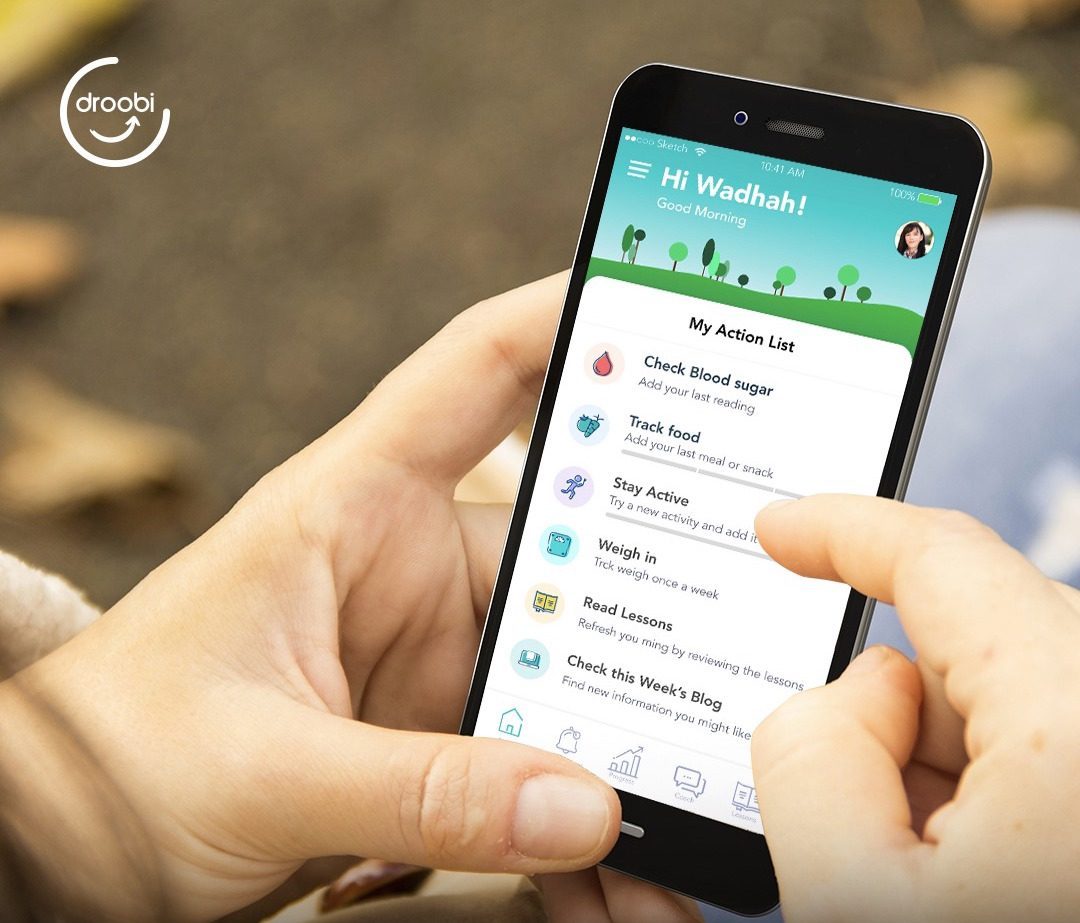The digital health programmes will target patients with chronic conditions such as Type-2 diabetes
Patients can now access health programmes remotely through the collaboration of Droobi Health, a digital platform to support chronic disease management, and the Primary Health Care Corporation (PHCC).
Patients will be guided through a tailored experience that includes a consultation and walkthrough of Droobi’s online programme. They will also be able to track progress and receive proactive, tailored interventions and recommendations from their assigned certified diabetes educators through online chats in Droobi’s app.
The programme also includes interactive educational lessons and an action plan tailored to the individuals’ specific conditions to help users build long-term healthy habits to achieve their goals.
“From a clinician’s perspective, the Droobi application has helped diabetic patients engage in their care management, supporting their glycemic control through lifestyle changes. Through this and other initiatives, PHCC has taken a great leap in reducing the burden of diabetes in the community,” said Dr Dalia Hassan, family medicine consultant at Leabaib Health Centre.
The collaboration comes after a successful pilot in 2019, with 500 patients recruited at PHCC’s Rawdat Al Khail and Leabaib health centres, to trial Droobi’s diabetes management programme. Initial results from this pilot showed improved clinical outcomes such as lowered average blood sugar levels and weight.
“I am so happy with the daily support I receive from the application and the health coach. They are super supportive, and I always benefit from their knowledge. I was able to adhere to my personalised plan, got back on track with my physical activity and changed my diet. I am so proud that I lost 5kg and got my blood sugar under control,” said Badria, a Droobi user recruited in 2019.
The digital programmes is particularly effective due to the ongoing COVID-19 pandemic helping to minimise the impact on regular care delivery and cope with backlogs, increased waiting lists and lack of regular in-person follow-ups; which pose health risks to patients living with chronic conditions.







